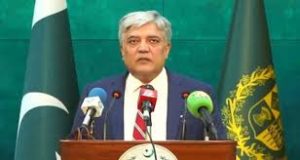UK sanctions target foreign suppliers to Russian military

London: Britain on Tuesday imposed sanctions on an Iranian drone maker and a range of other foreign businesses, accusing them of supplying Russian forces with weapons and components for use against Ukraine.
Britain, the U.S. and the European Union have imposed a range of sanctions since last February to punish Russia for its invasion of Ukraine, which Moscow calls a “special military operation”.
The British government set out 25 new sanctions on individuals and businesses in Iran, Turkey, Belarus, Slovakia, Switzerland and the United Arab Emirates, as well as Russia.
“Today’s landmark sanctions will further diminish Russia’s arsenal and close the net on supply chains propping up (President) Putin’s now struggling defence industry,” British foreign minister James Cleverly said.
Iranian drone maker Paravar Pars and seven of its executives, already subject to U.S. sanctions announced in February, and two Turkey-based exporters of microelectronics, Azu International and Turkik Union, were among those targeted by Britain.
The sanctions prohibit British entities from providing trust services – the creation of a trust or similar arrangement – to those sanctioned and also impose asset freezes, which block their assets held in Britain.
Azu and Turkik Union had a role in exporting microelectronics to Russia that were essential for the country’s military activity in Ukraine, Cleverly said.
In December, Reuters reported that Azu had exported at least $20 million worth of components to Russia, including chips made by U.S. manufacturers.
In April, the U.S. Treasury also accused Azu of shipping foreign-origin computer chips to Russia. Azu’s owner could not be immediately contacted for comment.
The British government imposed sanctions on a number of individuals as well on Tuesday, including Swiss national Anselm Oskar Schmucki, who it says is the chief of the Moscow office of a Switzerland-based crypto asset manager, DuLac Capital Ltd.
It alleged Schmucki’s involvement in “obtaining a benefit from, or supporting the Government of Russia, by carrying on business in a sector of strategic significance, namely the Russian Financial Services Sector,” as the reason for targeting him.
DuLac did not immediately respond to Reuters’ request for a comment on the sanctions on Schmucki, who was sanctioned by the U.S. in May.
The British government, which has sanctioned over 1,600 individuals and entities since the start of the Ukraine conflict, said the latest round of sanctions marked its biggest ever action on military suppliers in third countries.
The Slovak foreign ministry said it noted a Slovak citizen was among the 25 individuals and companies sanctioned and said the country was “cooperating with partners both in and out of the EU” on the sanctions regime imposed on Russia.





